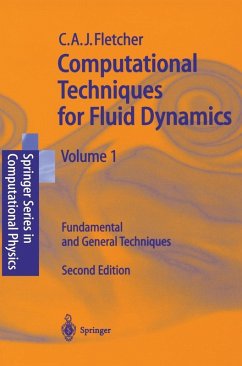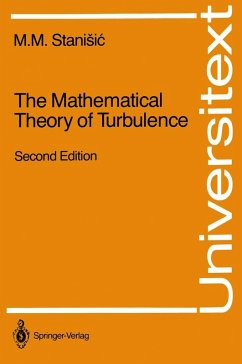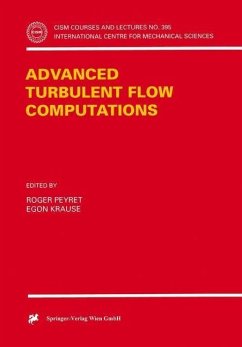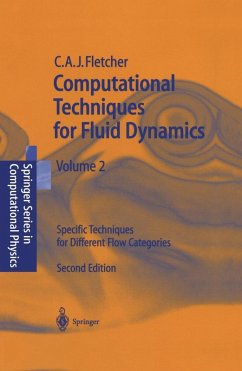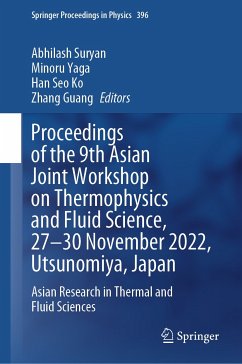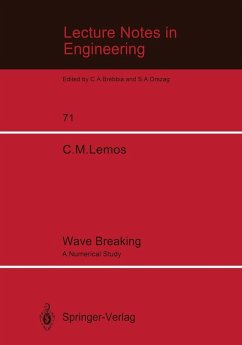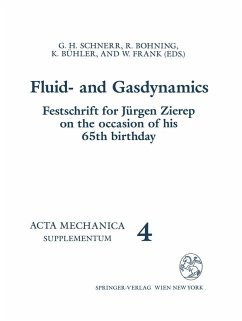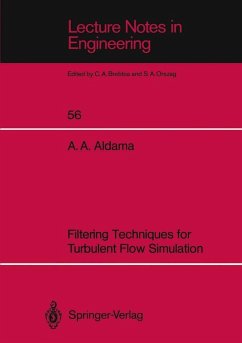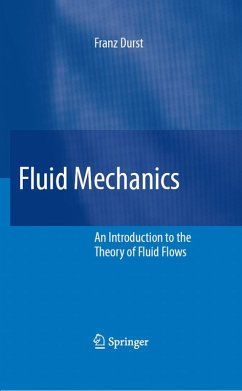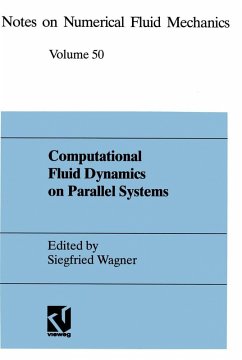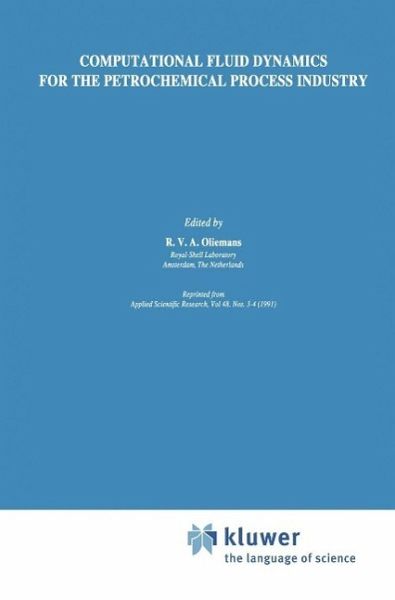
Computational Fluid Dynamics for the Petrochemical Process Industry (eBook, PDF)
Versandkostenfrei!
Sofort per Download lieferbar
112,95 €
inkl. MwSt.
Weitere Ausgaben:

PAYBACK Punkte
56 °P sammeln!
The second of the 1989 conferences in the Shell Conference Series, held from 10 to 12 December in the Netherlands and organized by Koninklijke/Shell-Laboratorium, Amsterdam, was on "Computational Fluid Dynamics for Petrochemical Process Equip ment". The objective was to generate a shared perspective on the subject with respect to its role in the design of equipment involving complex flows. The conference was attended by scientists from four Shell laboratories and experts from universities in the USA, France, Great Britain, Germany and The Netherlands. R. V. A. Oliemans, G. Ooms and T. M. M. Ve...
The second of the 1989 conferences in the Shell Conference Series, held from 10 to 12 December in the Netherlands and organized by Koninklijke/Shell-Laboratorium, Amsterdam, was on "Computational Fluid Dynamics for Petrochemical Process Equip ment". The objective was to generate a shared perspective on the subject with respect to its role in the design of equipment involving complex flows. The conference was attended by scientists from four Shell laboratories and experts from universities in the USA, France, Great Britain, Germany and The Netherlands. R. V. A. Oliemans, G. Ooms and T. M. M. Verheggen formed the organizing committee. Complexities in fluid flow may arise from equipment geometry and/or the fluids themselves, which can be mUlti-component, single-phase or multiphase. Pressure and temperature gradients and any reactivity of components in the flow stream can be additional factors. Four themes were addressed: turbulent reacting and non-reacting flow, dispersed multiphase flow, separated two-phase flow and fluid flow simulation tools. The capabilities and limitations of a sequence of turbulence flow models, from the relatively simple k-£ model to direct numerical simulation and large eddy turbulence flow models, were considered for a range of petrochemical process equipment. Flow stability aspects and the potential of cellular automata for the simulation of industrial flows also received attention. The papers published in this special issue of Applied Scientific Research provide a fair representation of the Computational Fluid Dynamics topics discussed in the context of their application to petrochemical process equipment.
Dieser Download kann aus rechtlichen Gründen nur mit Rechnungsadresse in A, B, BG, CY, CZ, D, DK, EW, E, FIN, F, GR, HR, H, IRL, I, LT, L, LR, M, NL, PL, P, R, S, SLO, SK ausgeliefert werden.



